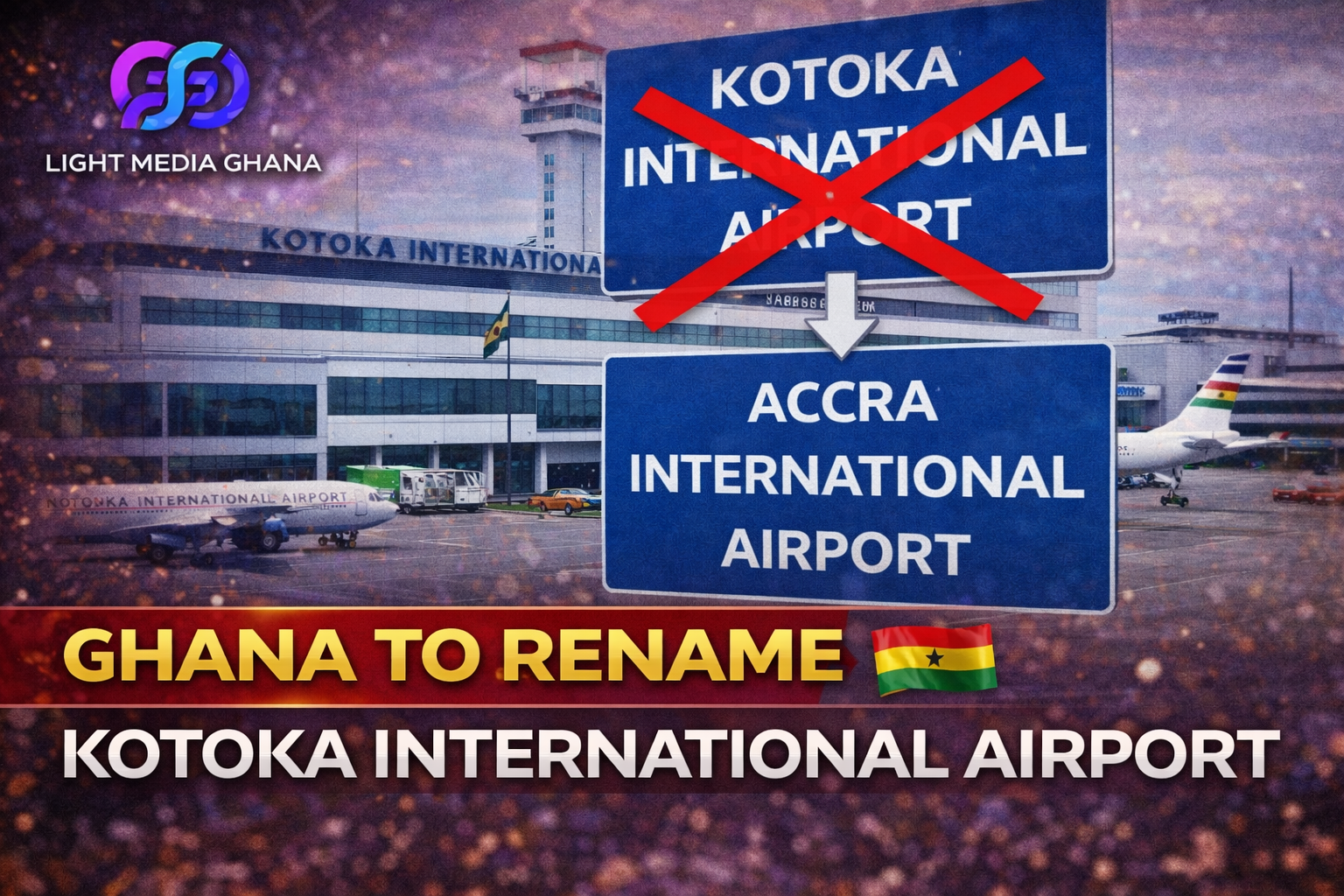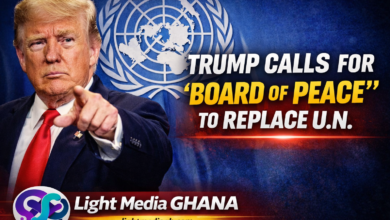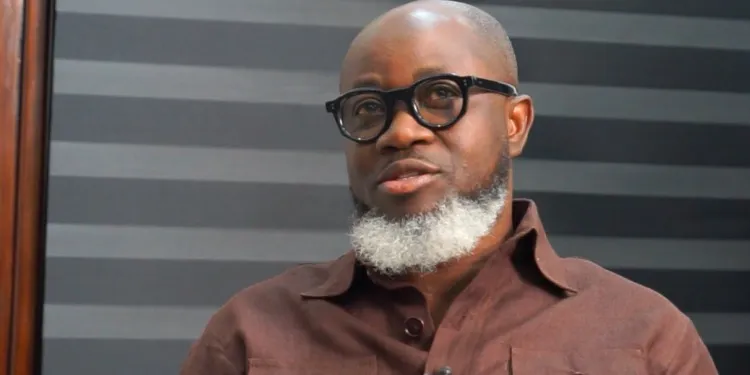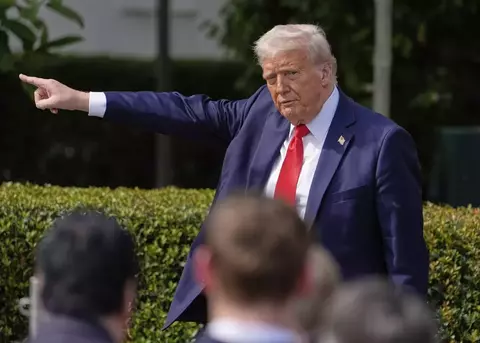Mahama Removes Ghana’s Chief Justice Torkornoo
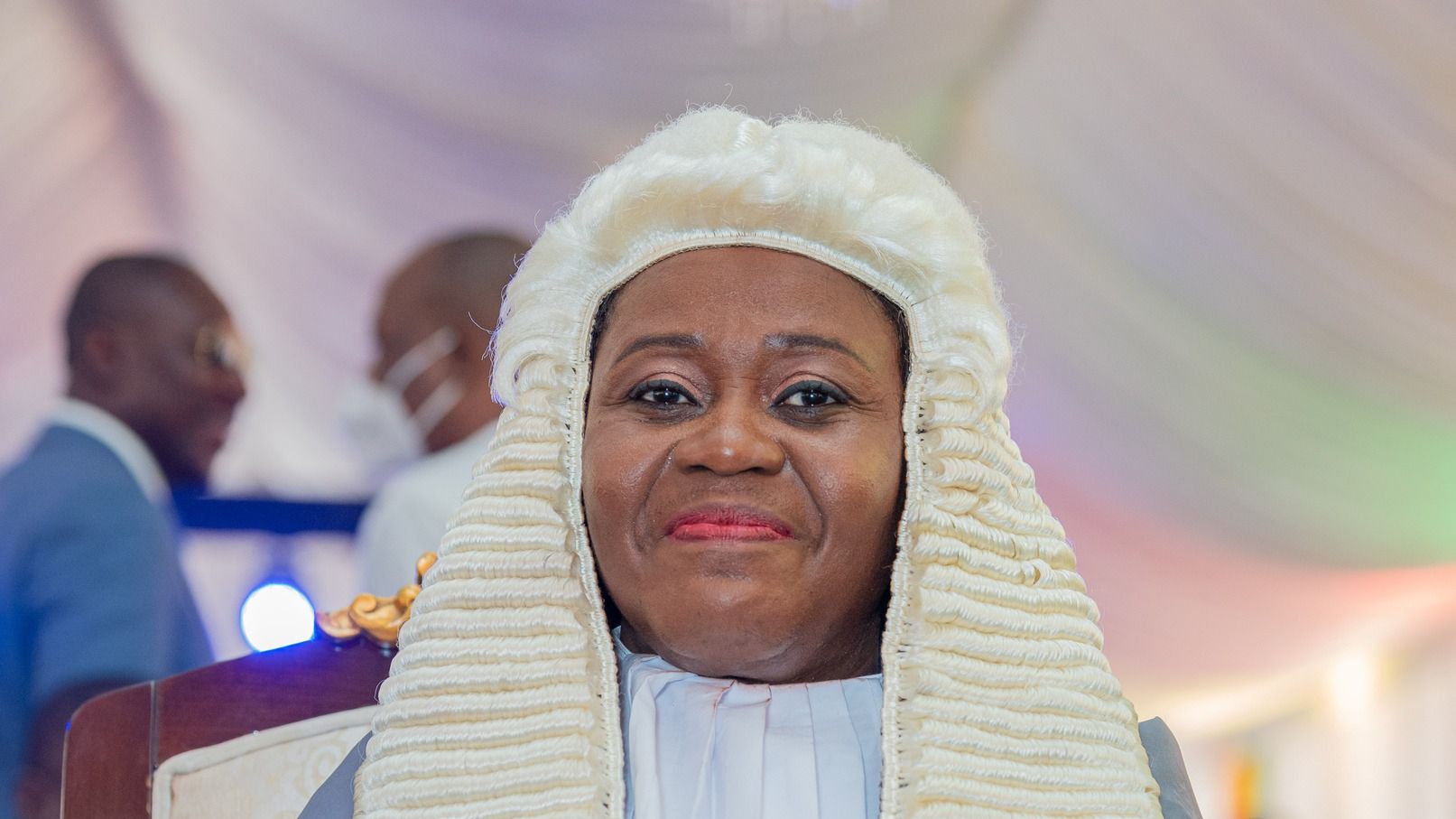
On September 1, 2025, President John Dramani Mahama announced the removal of Ghana’s Chief Justice, Gertrude Sackey Torkornoo, from office. The decision was taken after an investigative committee set up under Article 146 of Ghana’s 1992 Constitution concluded that she had engaged in “stated misbehaviour.”
Table of Contents
This marks a historic moment in Ghana’s Fourth Republic, being the first time a sitting Chief Justice has been removed from office through this constitutional process. The announcement has sent shockwaves across Ghana’s legal, political, and civic communities, triggering debates about judicial independence, executive power, and constitutional accountability.
Supporters of the President argue that no public officer is above scrutiny, and the removal shows that the rule of law applies even to the highest office of the judiciary. Critics, however, see the removal as an assault on judicial independence, warning that it sets a dangerous precedent where the judiciary could be subjected to political interference.
The removal of Chief Justice Torkornoo is not just a story about one individual—it is a case that cuts to the heart of Ghana’s democratic experiment, testing the balance of power between the executive, judiciary, and legislature.
In this article, we explore the full story of Justice Gertrude Torkornoo’s rise, her suspension, the investigations, the public reaction, the legal battles, and her final removal. We also examine the implications for Ghana’s judiciary, politics, democracy, and international image.
Profile of Chief Justice Gertrude Sackey Torkornoo
Justice Gertrude Sackey Torkornoo made history in June 2023 when she was sworn in as Ghana’s 15th Chief Justice, succeeding Justice Kwasi Anin-Yeboah. She was the third woman to hold the position in Ghana’s history, following Justices Georgina Theodora Wood and Sophia Akuffo.
Early Life and Education
Born on 11 September 1962 in Cape Coast, Torkornoo had a distinguished academic and professional journey. She studied at the University of Ghana, where she obtained her LLB degree, before attending the Ghana School of Law for her professional training. She later earned postgraduate qualifications in international law and development.
Legal Career
Before her appointment as Chief Justice, Torkornoo served in several judicial capacities:
- She was a High Court Judge, known for handling complex commercial and civil cases.
- She was elevated to the Court of Appeal in 2012.
- In 2019, she was appointed a Justice of the Supreme Court, where she contributed to landmark rulings.
Her career was marked by her reputation as a disciplined, articulate, and reform-oriented judge, with strong advocacy for judicial transparency and reforms in case management systems.
As Chief Justice
During her tenure as Chief Justice, she championed:
- Digitalization of court processes, making Ghana’s judiciary more modern and efficient.
- Judicial integrity and ethics, pushing for higher accountability in the justice sector.
- Gender equality and legal reforms, supporting the promotion of women within the legal field.
Her leadership style was both praised and criticized—admired for her commitment to reforms, but also seen as strict and uncompromising.
The Legal Framework: Article 146 of Ghana’s Constitution
Understanding the removal of Chief Justice Torkornoo requires a clear view of the legal process enshrined in the 1992 Constitution.
Article 146 Explained
- Article 146 provides the procedure for removing a Chief Justice or any superior court judge.
- It requires a petition alleging stated misbehaviour or incompetence to be submitted to the President.
- The President, if satisfied that a prima facie case is established, refers the matter to the Council of State, which then advises on whether a formal committee should be set up.
- A five-member committee is constituted to investigate the allegations.
- If the committee finds the judge guilty of misconduct, it recommends removal, and the President acts on this recommendation.
This framework was designed to balance judicial accountability with protection against political witch-hunts. However, the Torkornoo case has tested these safeguards like never before.
Events Leading to Suspension
On April 22, 2025, President Mahama suspended Chief Justice Torkornoo after receiving three separate petitions alleging “stated misbehaviour.” The specific allegations have not been publicly detailed, sparking speculation and controversy.
In his suspension order, President Mahama cited the need to protect the integrity of the judiciary while investigations were ongoing. Justice Paul Baffoe-Bonnie, the most senior Supreme Court judge, was appointed as Acting Chief Justice.
This was a pivotal moment, as the suspension itself was viewed by critics as premature and politically motivated. Civil society organizations and opposition groups questioned why the Chief Justice was suspended before the allegations were fully investigated.
The Investigative Committee’s Role
Following constitutional procedure, a five-member committee was established to probe the allegations. The identities of the members were not made public in detail, which fueled further criticism of the transparency of the process.
The committee reportedly heard evidence, reviewed documents, and examined witness testimonies before reaching its conclusion. On completion, the committee submitted a report to the President, recommending her removal.
Public Reaction to the Suspension
The suspension drew sharp reactions from multiple stakeholders:
- Legal community: Many lawyers expressed concern that the suspension undermined judicial independence.
- Civil society groups: Organizations like CDD-Ghana and OccupyGhana called for transparency in the process.
- Opposition politicians: The New Patriotic Party (NPP) accused Mahama of executive overreach.
- Pro-government voices: Mahama’s supporters argued that no one should be above accountability, including the Chief Justice.
Torkornoo’s Resistance and Public Statements
On June 25, 2025, Justice Torkornoo made her first public statement since her suspension. In a strongly worded address, she described the removal process as:
- “Unconstitutional” – arguing that the President had acted without giving her a chance to respond to the petitions.
- “Secretive” – criticizing the lack of transparency in the committee proceedings.
- “Cruel” – claiming the process was designed to humiliate and force her into resignation.
She declared her refusal to resign, saying:
“To resign would be to validate an illegitimate and unconstitutional attempt to silence the judiciary.”
Court Cases in Ghana
While the committee carried on with its investigation, Justice Torkornoo and her supporters pursued multiple legal challenges:
- Supreme Court: MP Vincent Assafuah filed a suit seeking to stop the President from removing the Chief Justice, arguing due process was not followed.
- High Court (Human Rights Division): Cases were filed challenging the constitutionality of the suspension.
Though these cases remain pending, the President proceeded with the removal after the committee’s report.
Appeal to ECOWAS Court
On July 4, 2025, Justice Torkornoo took her case to the ECOWAS Community Court of Justice in Abuja, Nigeria. She argued that her suspension amounted to a de facto removal, violating her fundamental human rights.
Her petition highlighted:
- Lack of due process.
- Violation of judicial independence.
- Damage to her professional reputation.
The ECOWAS Court has since admitted the case, though it has yet to deliver judgment.
September 1, 2025: The Official Removal
On September 1, President Mahama formally announced the removal of Chief Justice Torkornoo. The announcement stated that the President had acted on the binding recommendation of the Article 146 committee.
The removal took immediate effect, making Justice Paul Baffoe-Bonnie the Acting Chief Justice until a substantive replacement is appointed.
This decision effectively ended Torkornoo’s two-year tenure as Ghana’s Chief Justice.
Political Implications for Mahama’s Presidency
The removal has polarized Ghana’s political landscape:
- Supporters see Mahama as a leader who is willing to enforce accountability.
- Critics accuse him of eroding judicial independence and consolidating power.
The move will likely be a major issue in Ghana’s 2028 elections, shaping perceptions of Mahama’s respect for democratic institutions.
Impact on Judicial Independence
The removal of a Chief Justice raises fundamental questions about separation of powers in Ghana:
- Will judges feel intimidated by the executive?
- Does this weaken public trust in the judiciary?
- Could this embolden future presidents to target judges perceived as unfriendly?
These questions lie at the heart of Ghana’s democratic experiment.
Reactions from Lawyers, Judges, and Civil Society
Prominent lawyers, bar associations, and civic groups have issued statements:
- The Ghana Bar Association expressed “deep concern” about the precedent.
- OccupyGhana called for constitutional reforms to protect judicial independence.
- Some judges, speaking anonymously, expressed fear about the future of judicial independence.
Public Opinion in Ghana
Among the general public, reactions are mixed:
- Some see the removal as necessary for accountability.
- Others see it as politically motivated and dangerous.
- Social media has been filled with debates, hashtags, and protests.
Regional and International Reactions
The removal has also drawn international attention:
- ECOWAS is monitoring closely because of the pending case.
- African Union (AU) observers have raised concerns about democratic stability.
- Human rights organizations like Amnesty International have warned about executive interference.
Comparative Cases in Africa
Other African countries have seen similar judicial shake-ups:
- In Kenya, judicial appointments have often been contested.
- In Nigeria, Chief Justice Walter Onnoghen was controversially suspended in 2019.
- In South Africa, judges have faced political pressure in corruption cases.
Ghana’s case now joins this list, raising concerns about the resilience of African democracies.
The Role of Media and Public Discourse
The Ghanaian media has played a crucial role in shaping public understanding.
- Newspapers, radio, and TV have covered the case extensively.
- Social media has amplified debates, with hashtags like #CJRemoval and #JusticeForTorkornoo trending.
The Way Forward for Ghana’s Judiciary
With Justice Torkornoo out, attention turns to the future:
- Justice Paul Baffoe-Bonnie remains Acting Chief Justice.
- President Mahama is expected to nominate a new Chief Justice soon.
- Whoever is appointed will face the daunting task of restoring trust in the judiciary.
Constitutional Reforms Debate
Civil society groups are calling for reforms, such as:
- Limiting presidential powers in judicial removals.
- Making the committee process more transparent.
- Providing more protection for judges against political interference.
What This Means for Ghana’s Democracy
The removal of Chief Justice Gertrude Torkornoo is one of the most significant political and judicial events in Ghana’s Fourth Republic. It demonstrates the operation of constitutional accountability, but also raises serious fears about executive dominance.
Mahama Removes Ghana’s Chief Justice Torkornoo
Whether history judges this as a triumph of accountability or a setback for judicial independence will depend on future reforms, court rulings, and public trust.
Ghana now stands at a crossroads—to either strengthen its democracy or risk undermining the very institutions that safeguard it.
